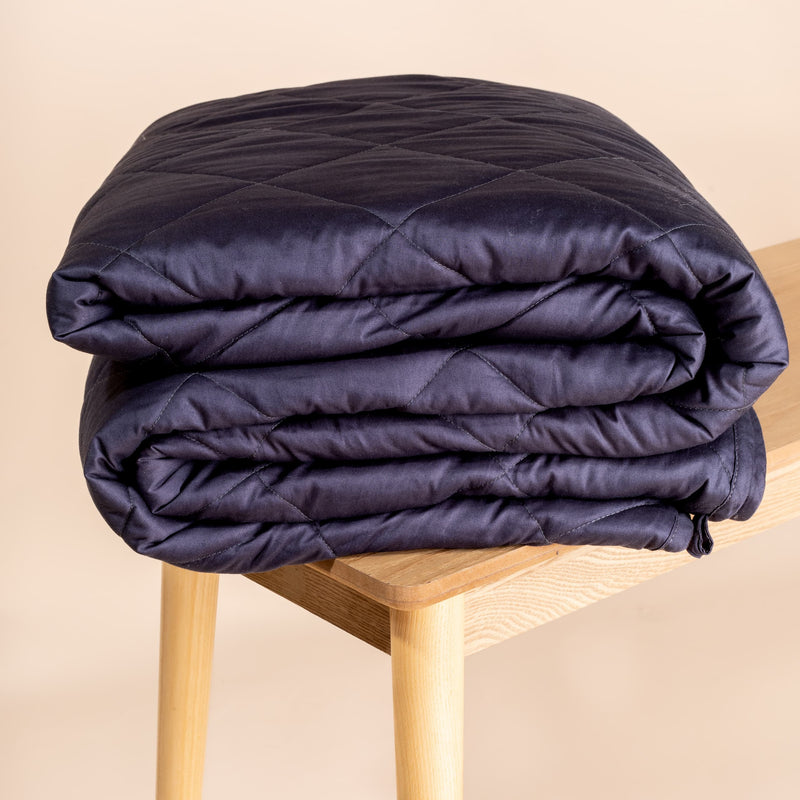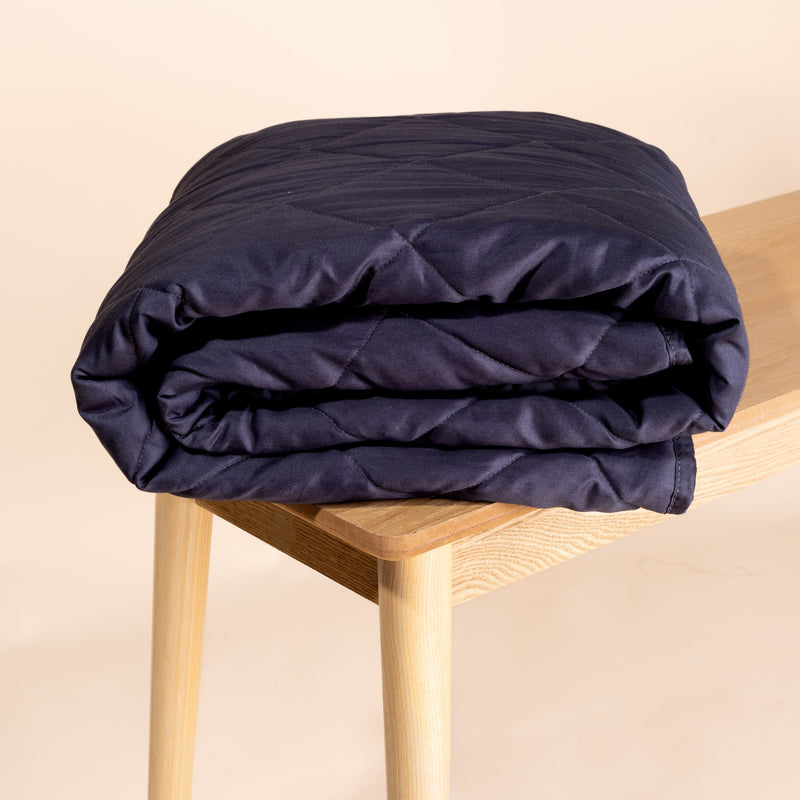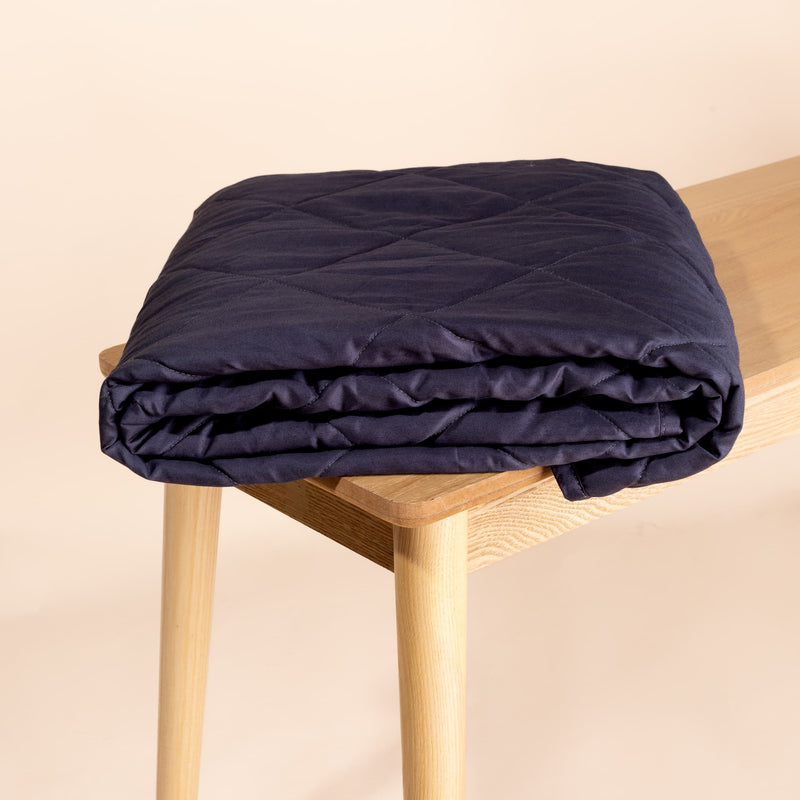Wij zijn ontzettend tevreden met deze zwaarte deken. Vanaf het eerste gebruik merkten we hoe rustgevend het effect is. De deken voelt comfortabel en gelijkmatig verdeeld aan, waardoor je echt een geborgen gevoel krijgt. Dit helpt enorm bij het ontspannen en zorgt voor een diepere, rustigere nachtrust.
De kwaliteit van het materiaal is uitstekend: zacht, ademend en stevig. Ook blijft de deken goed op zijn plek liggen gedurende de nacht. Sinds we deze zwaarte deken gebruiken, slapen we merkbaar beter en worden we uitgeruster wakker.
Kortom, een fijne en effectieve zwaarte deken die doet wat hij belooft. Zeker een aanrader voor iedereen die op zoek is naar meer rust en ontspanning tijdens het slapen.
Geweldig! Snel verzonden, goed verpakt en de eerste nacht gelijk al beter, en vooral dieper, geslapen. Vind het een heel fijn en ontspannen gevoel!
Fijn om te horen dat je enthousiast bent, Marije! Dank voor je review.













